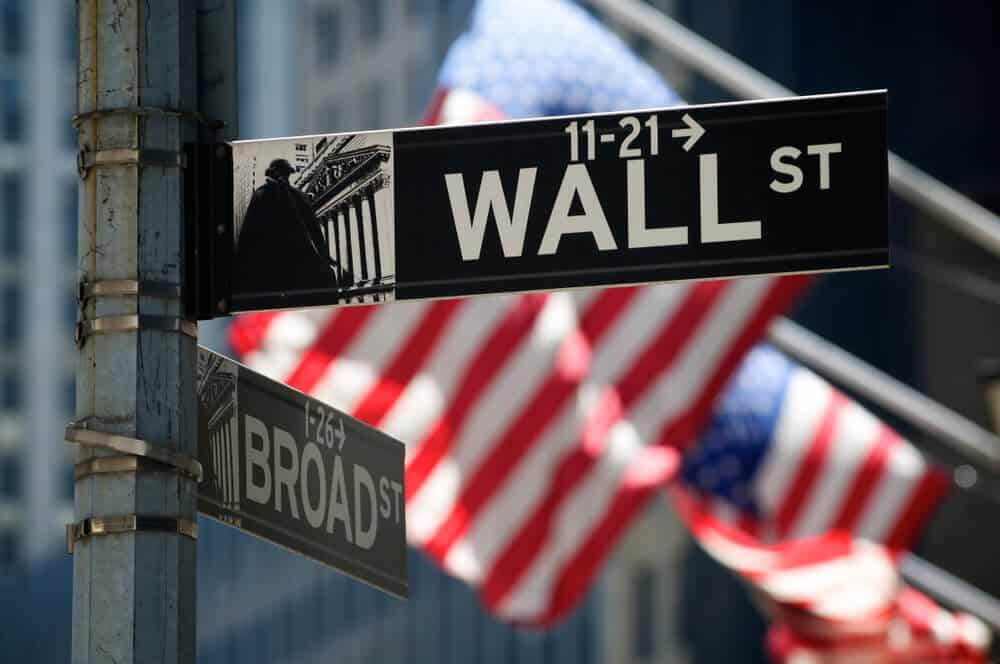
Stock Market Today: Wall Street rebound led to gains in Asian Markets
Wall Street closed with gains this Thursday, and its main indicator, the Dow Jones Industrials, climbed by 1.29%. Wall Street recovered part of what it lost in the previous trading day because of investors’ fear of inflation.
The principal index of the Tokyo Stock Exchange, the Nikkei, advanced by 2.32% this Friday. It was driven by bargain hunting after three days of losses on concerns about rising inflation and its potential impact on economic stimulus.
The Topix, including firms with the highest capitalization, added 1.86% or 34.38 points to stand at 1,883.42 units.
The Japanese government’s decision to prolong the state of health emergency to more areas to stop the increase in COVID-19 infections had a limited impact on the stock market. The trading volume amounted to 2.3 trillion yen.
Today, investors will be watching the May advance survey from the University of Michigan in the US and April data on industrial production and the import price index.
In the debt market, the interest on the German bond, which is considered the safest, slumped at this time. The yield on the US bond, which worries investors the most, declined to 1,656%.
Insurers and pharmaceutical companies pushed the Hang Seng
The main reference index of the Hong Kong Stock Exchange, the Hang Seng, closed the session with an advance of 1.11%. It was caused by the good results of the pharmaceutical companies and parquet insurance companies.
Selective Hong Kong added 308.9 points to 28,027.57. Meanwhile, the Hang Seng China Enterprises, the index that measures the mainland Chinese companies’ behavior listed on the Hong Kong stock market, grew by 0.63%.
Commerce and Industry were the only sub-indices to close in the red with a 0.03% decrease. At the same time, Real Estate increased by 0.13%. The services sector gained 0.47%, and Finance grew by 2.7%. The finance sector achieved the best results. The three insurers – AIA, China Life, and Ping An – ended the day with gains of 6.08%, 2.98%, and 2.65%, respectively.
Banking Sector was one of the main leads of the day
Banking was not far behind, with HSBC increasing by 1.88%. China Construction Bank gained 1.8%, and Bank of Communications climbed by 1.39%.
Pharmaceuticals were also protagonists, and CSPC Pharma led in percentage of profits, with a 10.64% gain. Sino Biopharm increased by 3.54%.
The state oil companies closed the week with different results. Cnooc lost 0.46%, while Petrochina lost 0.64%. Sinopec yielded 0.98%.
Digital commerce companies Meituan and Alibaba were the worst stops of the day, with losses of 3.02% and 4.13%, respectively.
The business volume of the session was 150,870 million Hong Kong dollars.
Alibaba shares slipped today
Alibaba sank after its first quarterly loss since 2012, when tech stocks lost $527 billion on February 17. The slide overshadowed a slight rebound in the broader Hong Kong market after a resilient US labor market report.
Higher commodity prices, strengthening regulations, faster US inflation, and liquidity in China has weakened investors’ confidence this week.
The MSCI Asia Pacific Index yielded this year’s profit on Thursday.
European stocks started with gains on Wall Street rebound
The European stock markets have started the session on Friday on the rise. They picked up the rebound on Wall Street, which yesterday closed with an increase of more than 1% after the last four sessions of consecutive falls.
At the beginning of the trading day, the Stock Market that rose the most was Madrid, with a surge of 1.01%. It was followed by Frankfurt, with a 0.99% gain. At the same time, London added 0.69%, Paris gained 0.58%, and Milan increased by 0.43%.
The Euro Stoxx 50, grouping the most significant European companies, also advanced by 0.71%.
Why didn’t the Covid-19 crisis in India prompt a stock market selloff?
India reported more than 300,000 confirmed covid-19 cases and more than 4,000 deaths in a day. However, the country’s benchmark equity index has been progressing in line with the stock indices in the region.
Some of the asset managers believe that one of the factors of India’s stock market’s good performance could be due to less stringent curbs on activity.
You can also observe the surprisingly muted stock market reaction to India’s virus disaster in net outflows of foreign investors. They totaled around $1.5 billion in April compared to $8.4 billion last March.
After four straight weeks of outflows, they became net buyers of Indian equities.
More limited lockdown measures state governments implemented have prevented a drop in economic activity as it happened last year. However, there is still the risk that the outbreak may prompt a sharp intensification in restrictions again.
What measures did the country apply, and how did it affect the economic condition?
Abhishek Gupta, Bloomberg’s India Economist, stated that currently, India is taking state-level confinements on non-essential services. It is not a blanket nationwide lockdown. All of it suggests that compared to the last year, the impact is likely to be limited.
According to Arvind Chari, chief investment officer at Quantum Advisors Pvt., a national lockdown is not priced into the markets. Yet, a sharp drop in stocks would produce an opportunity to allocate more to that asset class. Equity valuations have become expensive over the last year, he said.
Now, companies have better equipment to resume operations. They know the procedures to handle the lockdown. They have minimized the costs, smoothened operations and also, raised capital.
As for Manish Kumar, chief investment officer at ICICI Prudential Life Insurance Co., global sentiments and liquidity backs the market. Despite the surge in coronavirus cases in India, most developed nations are seeing a drop in infections. That is boosting Indian markets.




